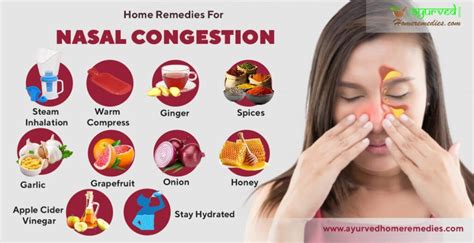How to Clear Nasal Congestion: Effective Home Remedies and When to See a Doctor
Nasal congestion, that frustrating blockage in your nose, can make breathing, sleeping, and even enjoying your favorite foods difficult. Fortunately, there are many ways to clear your stuffy nose, ranging from simple home remedies to medical treatments. This guide will walk you through effective strategies to alleviate nasal congestion and when it's time to seek professional help.
Understanding Nasal Congestion
Before diving into solutions, it's helpful to understand what causes nasal congestion. Common culprits include:
- The Common Cold: Viral infections are a primary cause, leading to inflammation and mucus buildup.
- Allergies: Pollen, dust mites, pet dander, and other allergens trigger an inflammatory response in the nasal passages.
- Sinusitis: Inflammation of the sinuses can cause significant congestion and pressure.
- Flu: Influenza can also lead to significant nasal congestion and other respiratory symptoms.
- Dehydration: Lack of fluids can thicken mucus, making congestion worse.
Effective Home Remedies for Nasal Congestion Relief
Many effective home remedies can provide relief from nasal congestion. Here are some of the most popular and effective:
1. Saline Nasal Rinse (Neti Pot)
A saline nasal rinse is a highly effective way to flush out irritants and mucus from your nasal passages. Simply mix a saline solution (salt and water) and gently rinse your nasal passages. You can purchase pre-made saline solutions or make your own. Ensure you use distilled or sterile water to avoid infection. This is a fantastic method for allergy sufferers!
2. Steam Inhalation
The warm, moist air from steam can help loosen mucus and improve drainage. Inhale steam from a bowl of hot water (be careful not to burn yourself!), or take a hot shower. Adding essential oils like eucalyptus or peppermint can enhance the effect, but always use them sparingly and avoid if you have allergies.
3. Hydration
Staying well-hydrated is crucial for thinning mucus and making it easier to drain. Drink plenty of water, clear broths, and herbal teas. Avoid caffeinated and alcoholic beverages, as they can dehydrate you.
4. Elevating Your Head
Elevating your head while sleeping can help drain mucus and reduce congestion. Use extra pillows to keep your head elevated.
5. Over-the-Counter Medications
Several over-the-counter medications can provide relief from nasal congestion. These include:
- Decongestants: These medications, available as nasal sprays or oral tablets, can temporarily shrink swollen blood vessels in the nasal passages, providing relief from congestion. However, overuse can lead to rebound congestion, so follow the instructions carefully.
- Saline Nasal Sprays: These sprays help to moisturize the nasal passages and loosen mucus.
- Pain Relievers: Over-the-counter pain relievers, such as acetaminophen or ibuprofen, can help reduce pain and fever associated with congestion.
When to See a Doctor
While home remedies can effectively manage mild nasal congestion, it's important to seek medical attention if your symptoms worsen or persist. Consult a doctor if:
- Your congestion lasts longer than 10 days.
- You have a high fever (over 101°F or 38.3°C).
- You experience severe facial pain or pressure.
- You have difficulty breathing.
- You have green or yellow nasal discharge.
- You have other symptoms such as severe cough, chest pain, or body aches.
By following these tips and knowing when to seek professional help, you can effectively manage your nasal congestion and breathe easier. Remember that consistency with home remedies and mindful use of over-the-counter medications are key to successful relief.
